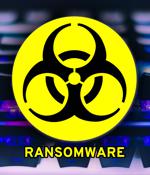Security News

Sophos has released details of a new ransomware written in Python that attackers used to compromise and encrypt virtual machines hosted on an ESXi hypervisor."This is one of the fastest ransomware attacks Sophos has ever investigated and it appeared to precision-target the ESXi platform," said Andrew Brandt, principal researcher at Sophos.

Anyone that needs to hide away sections of text in Google Documents should give this handy add-on a try. When whole documents are sensitive, I tend to not write them in Google Docs, but rather a locally installed tool that makes it possible to encrypt a document.

Operators of an unknown ransomware gang are using a Python script to encrypt virtual machines hosted on VMware ESXi servers. While the Python programming language is not commonly used in ransomware development, it is a logical choice for ESXi systems, seeing that such Linux-based servers come with Python installed by default.
![S3 Ep52: Let’s Encrypt, Outlook leak, and VMware exploit [Podcast]](/static/build/img/news/s3-ep52-lets-encrypt-outlook-leak-and-vmware-exploit-podcast-small.jpg)

HTTPS, short for secure HTTP, relies on the encryption protocol known as TLS, which is short for transport layer security. Many high-traffic sites were afraid of HTTPS because of the extra time taken by the "Cryptographic dance" demanded by the protocol every time a visitor arrived at the site, and because of the need to encrypt and decrypt every byte sent and received thereafter.

Issuing and installing SSL certificates doesn't have to be a challenge, especially when there are tools like acme. Installing SSL certificates isn't difficult, but it's a process every Linux administrator will have to take on at some point in their career.

The justice ministry of the South African government is working on restoring its operations after a recent ransomware attack encrypted all its systems, making all electronic services unavailable both internally and to the public. As a consequence of the attack, the Department of Justice and Constitutional Development said that child maintenance payments are now on hold until systems are back online.

WhatsApp on Friday announced it will roll out support for end-to-end encrypted chat backups on the cloud for Android and iOS users, paving the way for storing information such as chat messages and photos in Apple iCloud or Google Drive in a cryptographically secure manner. "With the introduction of end-to-end encrypted backups, WhatsApp has created an HSM based Backup Key Vault to securely store per-user encryption keys for user backups in tamper-resistant storage, thus ensuring stronger security of users' message history," the company said in a whitepaper.

A new version of the LockBit 2.0 ransomware has been found that automates the encryption of a Windows domain using Active Directory group policies. After ransomware topics were banned on hacking forums [1, 2], LockBit began promoting the new LockBit 2.0 ransomware-as-a-service operation on their data leak site.

A massive ransomware campaign targeting QNAP devices worldwide is underway, and users are finding their files now stored in password-protected 7zip archives. The ransomware is called Qlocker and began targeting QNAP devices on April 19th, 2021.